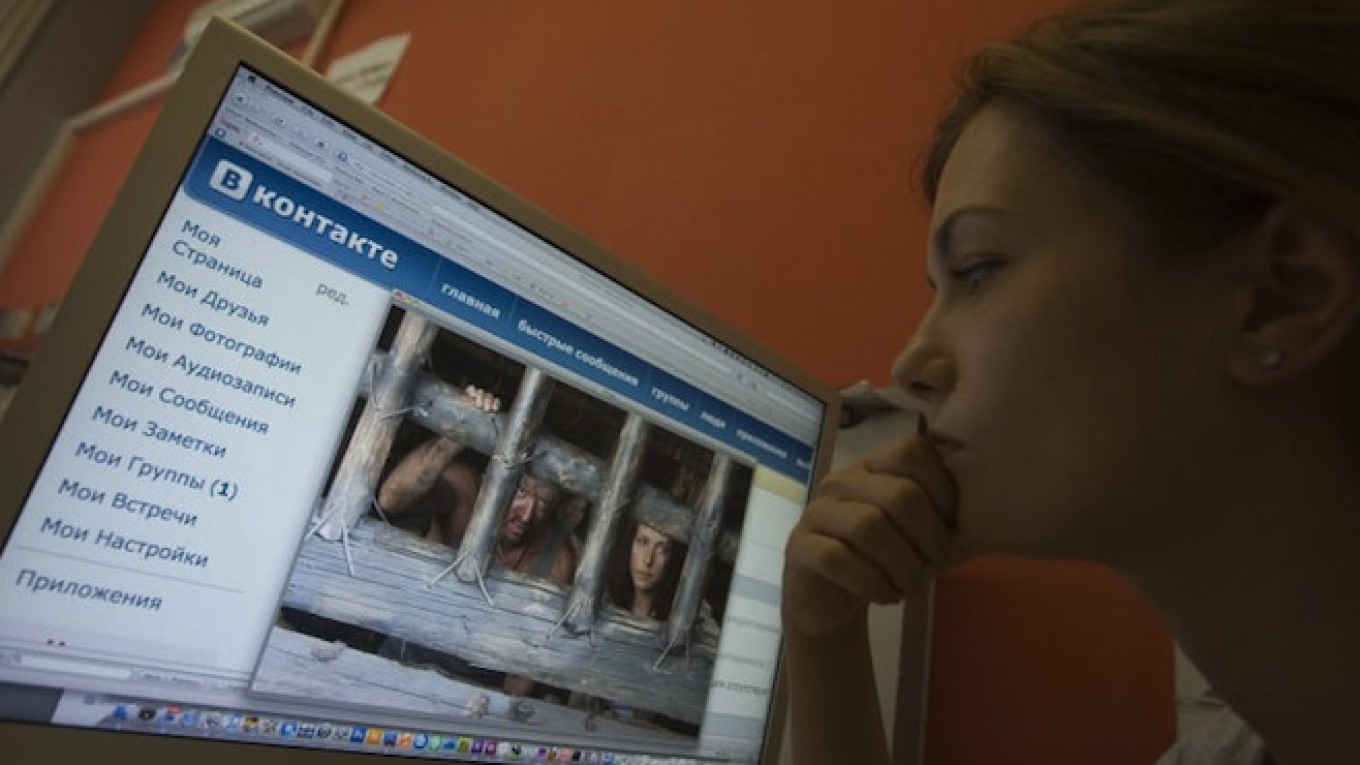Russia's most popular social network VKontakte went offline for a few hours during a peak time of Internet activity, troubling scores of users in what the company attributed to an "unprecedented" heat wave knocking out some of its computer servers.
VKontakte was up and running like normal Monday morning after having been down for about three hours the previous evening, spokesman Georgy Lobushkin said in an online statement, apologizing to users for "those unbearable hours of waiting."
Earlier in a Twitter message, Lobushkin apologized for the inconvenience and said the VKontakte outage seemed worse than another one that most Russians have to bear every summer: having no hot running water in their apartments for about two weeks of annual maintenance work.
A Russian hashtag on Twitter, #вкживи — "VK come to life" — emerged as a top hashtag in the country within half an hour and made it as a leader in the global rankings a few minutes later, news site TJournal.ru reported.
Some netizens added a dash of irony to the network's disappearance. One Twitter user wrote that the outage was a ploy to stop Russians from "exchanging information" and compel them to watch state-run television. A restaurant chain tweeted that VKontakte was down to allow Russians to "finally dine normally."
In a reference to the comment spaces on VKontakte pages, one Twitter user quipped: "Renovations have begun at VKontakte. First, they whitewashed the 'walls.'"
VKontakte crashed after an "unprecedented" heat wave in St. Petersburg, where temperatures edged upwards of 30 degrees Celsius (85 F) on Sunday, disrupting the work of a company data center in the city, Lobushkin said on Twitter.
The heat caused some of the computer servers' cooling equipment to fail, prompting the servers to go into an emergency shutdown mode, Lobushkin said in a statement.
After the shutdown disrupted access to a number of VKontakte photos and posts, the company decided to go offline completely to make it easier for IT technicians to restore operations and avoid a loss of user data, he said.
Four years ago nearly to the day — on July 25, 2010 — another heat wave cut power supply to a VKontakte data center, prompting the company to install additional emergency generators to ensure that "even a complete power outage does not cause disruptions in the social network's operations," Lobushkin said.
He pledged that VKontakte will conduct additional work to make sure that its computer servers remain cool and the social network will "work for you in any weather."
See also:
A Message from The Moscow Times:
Dear readers,
We are facing unprecedented challenges. Russia's Prosecutor General's Office has designated The Moscow Times as an "undesirable" organization, criminalizing our work and putting our staff at risk of prosecution. This follows our earlier unjust labeling as a "foreign agent."
These actions are direct attempts to silence independent journalism in Russia. The authorities claim our work "discredits the decisions of the Russian leadership." We see things differently: we strive to provide accurate, unbiased reporting on Russia.
We, the journalists of The Moscow Times, refuse to be silenced. But to continue our work, we need your help.
Your support, no matter how small, makes a world of difference. If you can, please support us monthly starting from just $2. It's quick to set up, and every contribution makes a significant impact.
By supporting The Moscow Times, you're defending open, independent journalism in the face of repression. Thank you for standing with us.
Remind me later.






